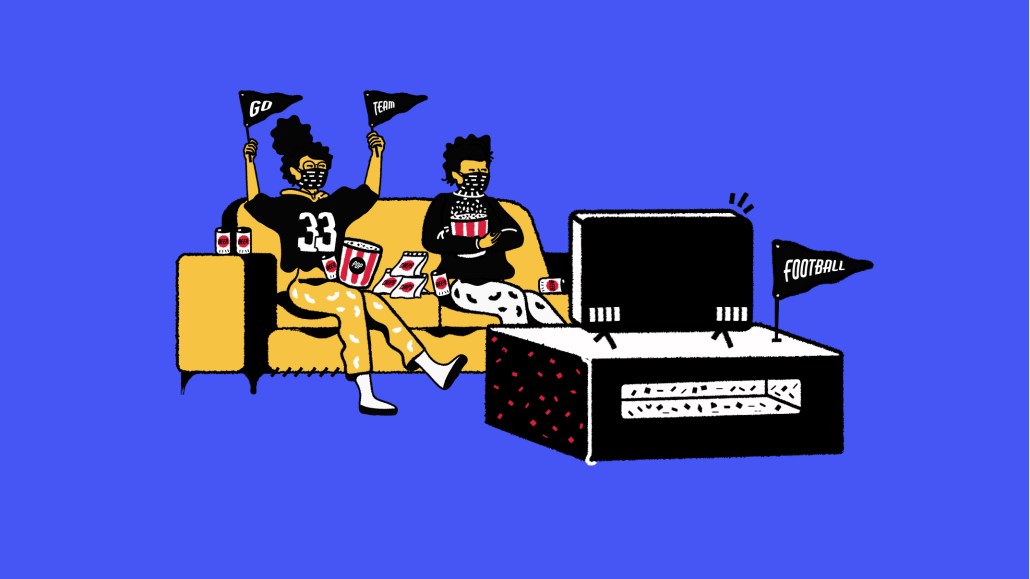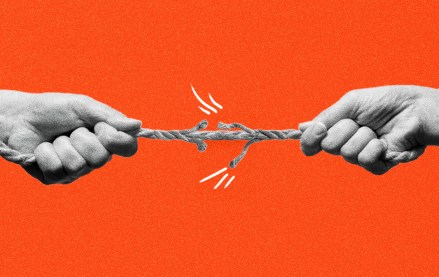Inside ESPN’s campaign to get fantasy football players to sign up for its upcoming season

ESPN has teamed up with long-standing agency partner Butler, Shine, Stern & Partners (BSSP) for a new campaign to attract fantasy football players to sign up for its upcoming season.
It’s the first live-action collaboration between BSSP and the brand in a continuation of a partnership that began in 2019.
“ESPN has always been successful at using humor to attract people to their brand. It’s part of who they are as a brand. They don’t take themselves too seriously,” said Leslie North, evp, head of strategy at Swift. “However, they know that sports is serious but it should also be fun and entertaining.”
ESPN’s three-part series of comedic vignettes focuses on how fantasy football plays a big part in everyday life and how it affects relationships in the real world.
“It’s an important part of our business. We know that these fans are very valuable to us. And there are some of our most avid fans,” said John Lobo, associate director, brand marketing at ESPN.
As part of the campaign, the spots will run across linear and online video as well as a variety of media types, including radio, podcasts, digital ads and out-of-home advertising. In the coming weeks, additional spots will be released as part of the campaign.
This campaign was inspired by a connection and sense of community, and what fantasy football does for people. “I think some of our earlier ideas were more tighter into who the kinds of people that come together to play it. So more about the bringing of different people and friend groups and strangers and like unlikely pairings and all of those kinds of things,” said Robyn Tenenbaum, creative director at BSSP.
It is unclear how much of ESPN’s advertising budget is allocated to the video spots and social media advertising, as Lobo would not share overall budget specifics. According to Pathmatics, ESPN spent close to $45 million so far in 2022 on advertising efforts. Lobo noted that the ad spend for these spots were on linear TV, online video, radio podcasts, and digital out-of-home displays. Additionally, the spots will run during ESPN programming.
Throughout the campaign, fantasy league problems are overshadowed by everyday problems as the campaign emphasizes the possibility of unlikely relationships. Because of this, the BSSP intentionally incorporated unlikely situations, such as a couple arguing over fantasy football disagreements in therapy over what they should name their married couple, and a coworker referring to their partner by the fantasy team name that they refer to each other as in fantasy football, which could only happen in fantasy football.
“Brands have to listen to the communities and the conversations that surround them in order to maintain relevance but also to breakthrough and resonate with their audience,” North said. “Consumers expect more than advertising from brands and if that value is entertainment and humor.”
The brand is trying to showcase what makes the game so special, after their record-breaking season in 2021, and is highlighting the things that make the game so unique: the sense of community, the camaraderie, and the constants that only exist in fantasy football. “As a first priority, we want to get as many people who played in the past year back into the game as possible,” said Lobo as the retention strategy is to keep these fans, who they call league managers or commissioners.
Tenenbaum concluded, “I do feel like it’s going to bring in a lot of other types of players and fans who maybe didn’t consider playing before. But now that they see the campaign, it is a place for anyone who you don’t have to know everything there is to know about football, to be a part of the world.”
More in Marketing

Inside the debate among marketers for and against virtual influencers
The rise of AI and the growth of the creator economy have sparked a resurgence in marketers’ interest in these digital personas.

After latest cookie delay, Google tells ad tech there will be ‘gradual ramp up’ but eschews specifics
It’s been two weeks (ish) since Google announced the third delay to its long-gestating plan to rid it’s browser of third-party cookies — just about enough time to get over the shock of the utterly predictable.

Why The Voice is investing in a cross-platform metaverse strategy
ITV Studios’ expansion into metaverse platforms represents one way the company is looking to take advantage of its ownership of the broader The Voice brand without having to deal with regional partners such as NBC.








